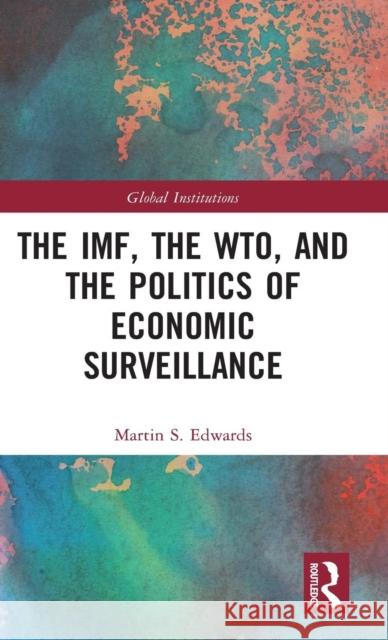The Imf, the Wto & the Politics of Economic Surveillance » książka
The Imf, the Wto & the Politics of Economic Surveillance
ISBN-13: 9780415658164 / Angielski / Twarda / 2018 / 160 str.
The Imf, the Wto & the Politics of Economic Surveillance
ISBN-13: 9780415658164 / Angielski / Twarda / 2018 / 160 str.
(netto: 723,00 VAT: 5%)
Najniższa cena z 30 dni: 654,86
ok. 16-18 dni roboczych.
Darmowa dostawa!
The global economic crisis has certainly tested the international economic organizations, particularly the IMF and the WTO. The London G20 Summit committed the members to strengthen IMF surveillance as a means to better discipline economic policies. At the same time, the Fund's own Independent Evaluation Office has engaged in a very public recounting of how its surveillance procedures failed to anticipate the onset of the crisis. The world is paying increasing attention to issues of transparency and accountability, questioning whether these organizations are in part responsible for the global economic crisis, as well as assessing their responsiveness to the crisis. This comparative analysis of surveillance at the IMF and WTO fills a significant gap in the existing literature, drawing together a large range of empirical data and offering an extended critical analysis of this key issue. Examining how and in what contexts surveillance is influential and how variations in institutional design shape the effectiveness of surveillance, Edwards moves on to offer suggestions of how surveillance can be designed differently to make it more effective in the future. This work will be of great interest to students and scholars of international organizations, international political economy and global governance.











